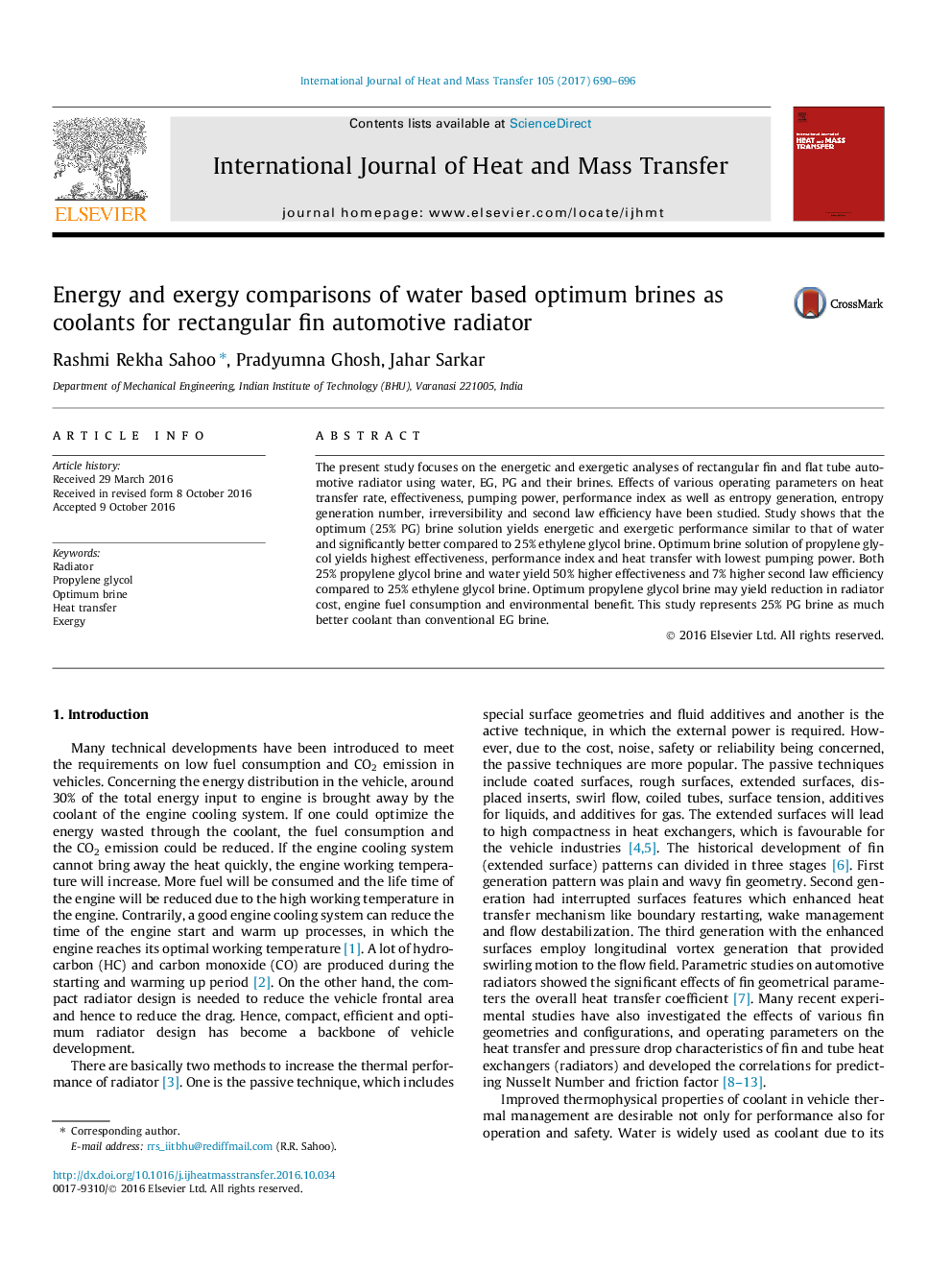| Article ID | Journal | Published Year | Pages | File Type |
|---|---|---|---|---|
| 4994724 | International Journal of Heat and Mass Transfer | 2017 | 7 Pages |
Abstract
The present study focuses on the energetic and exergetic analyses of rectangular fin and flat tube automotive radiator using water, EG, PG and their brines. Effects of various operating parameters on heat transfer rate, effectiveness, pumping power, performance index as well as entropy generation, entropy generation number, irreversibility and second law efficiency have been studied. Study shows that the optimum (25% PG) brine solution yields energetic and exergetic performance similar to that of water and significantly better compared to 25% ethylene glycol brine. Optimum brine solution of propylene glycol yields highest effectiveness, performance index and heat transfer with lowest pumping power. Both 25% propylene glycol brine and water yield 50% higher effectiveness and 7% higher second law efficiency compared to 25% ethylene glycol brine. Optimum propylene glycol brine may yield reduction in radiator cost, engine fuel consumption and environmental benefit. This study represents 25% PG brine as much better coolant than conventional EG brine.
Related Topics
Physical Sciences and Engineering
Chemical Engineering
Fluid Flow and Transfer Processes
Authors
Rashmi Rekha Sahoo, Pradyumna Ghosh, Jahar Sarkar,
